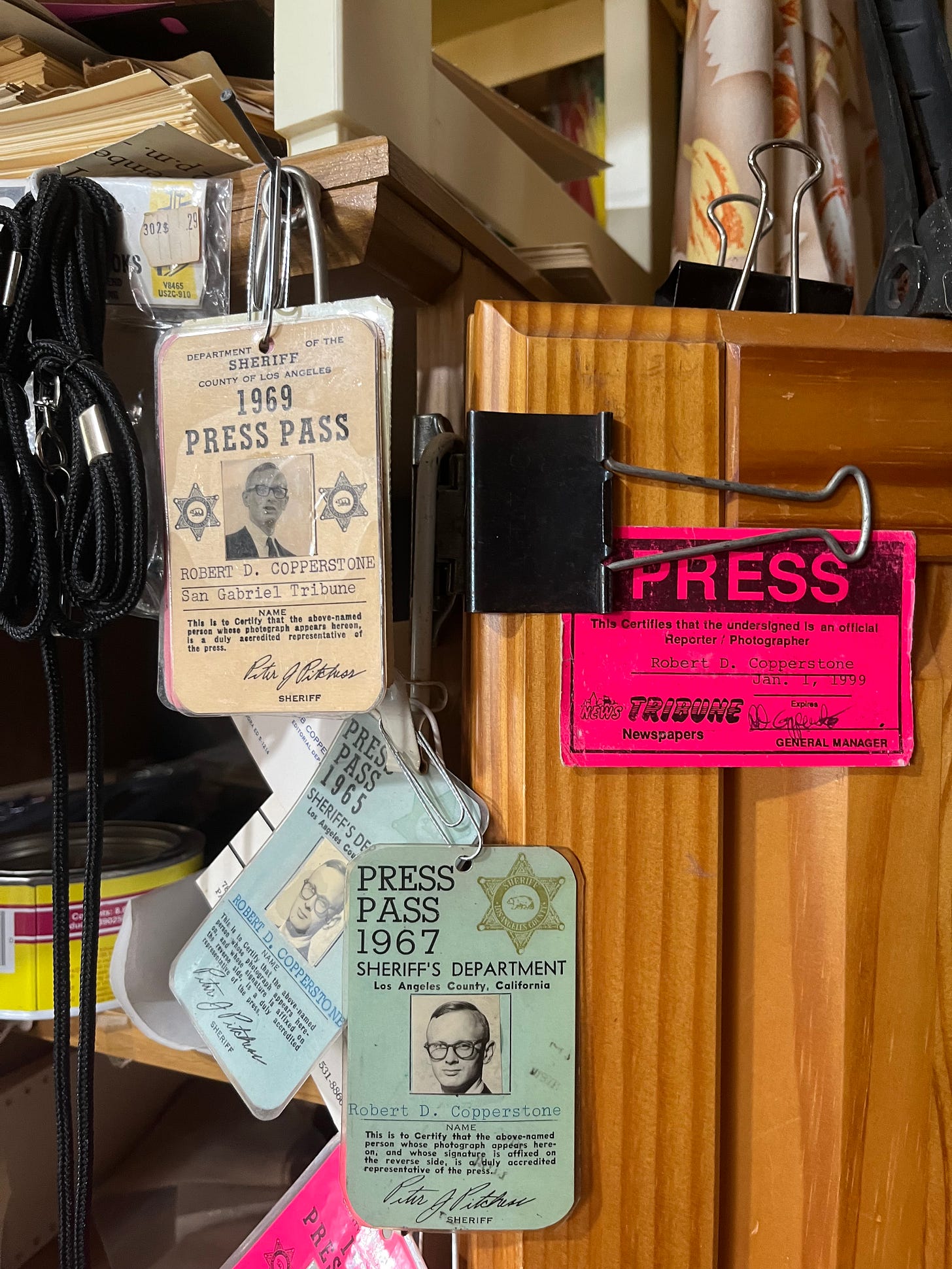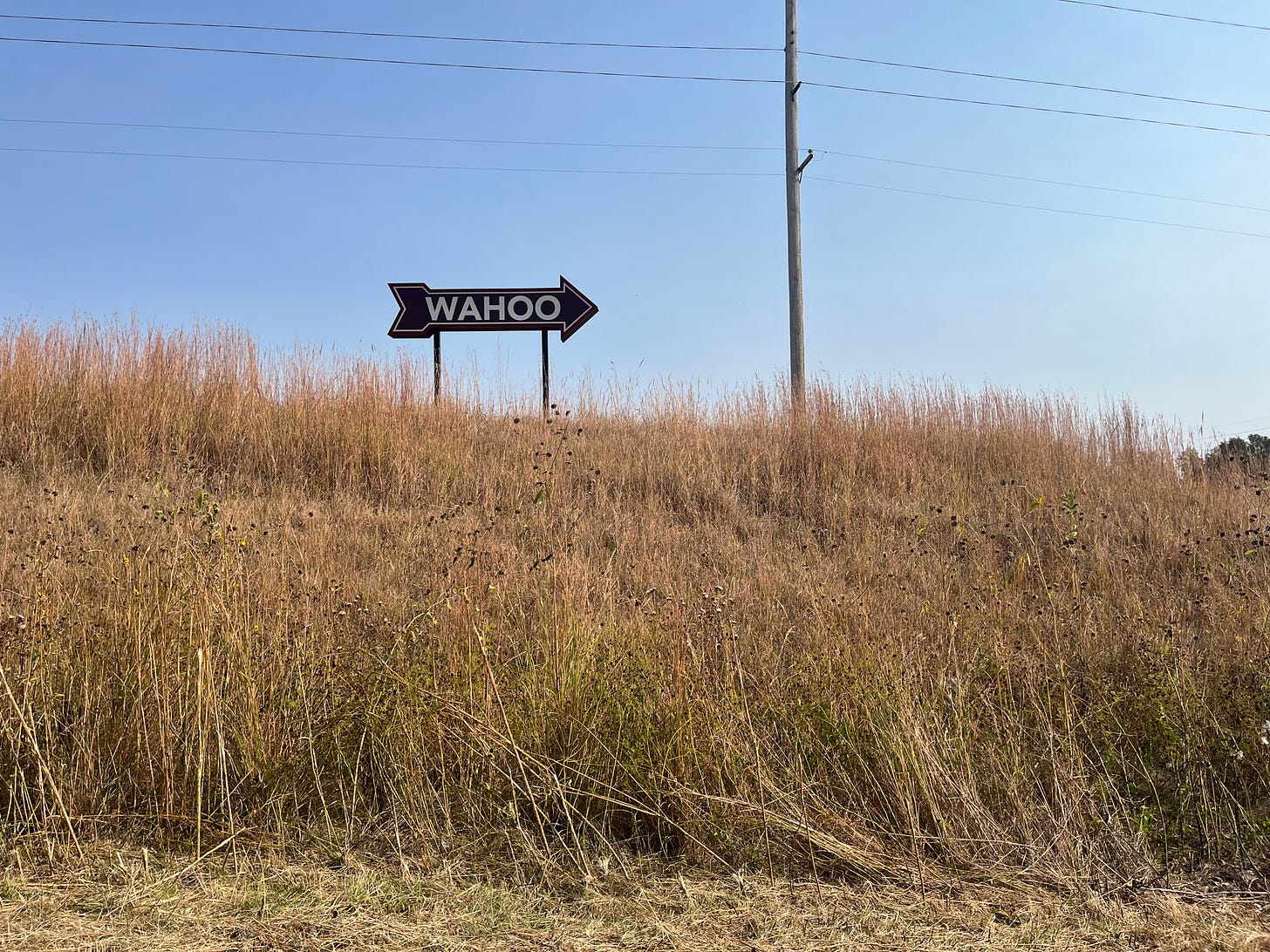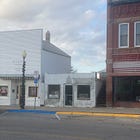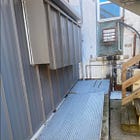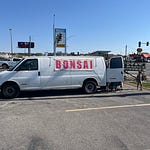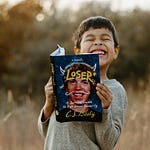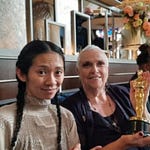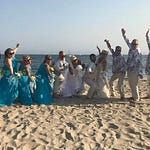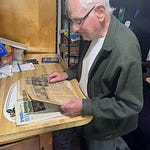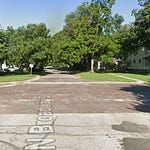By Bob Copperstone
As a 10-year-old in 1948, I watched as the downtown Wigwam Café, run by my parents, Hank and Irma Copperstone waged an energetic but fripendly rivalry with the Fairview and Day & Nite cafés on the highway.
The Wigwam’s competition was north of downtown along the combined U.S. Highways 77 and 30-Alternate route that cut through Wahoo, and included the Whirla-Whip and Dairy Queen ice cream shops, among others.
It was a vigorous but subdued rivalry. Lillie Gibson, who owned the Fairview Café on the highways (and the City Café downtown), was the queen of that highway and wore her crown graciously as a well-respected civic leader.
Now, my dad, Hank, was also a respected businessman, and was much more outgoing and gregarious than Lillie.
Every night, after locking up the Wigwam and well after almost every downtown business had gone dark, Hank would seek the bright lights of the enemy territory and invading Lillie’s bright Fairview Cafe corner for coffee and camaraderie.
The Texaco and Frontier gas stations and, before my time, the Good-Fill station) at 12th and Chestnut, along with the Day & Nite Café, combined their fluorescent beacons that attracted Hank (and often me) like the proverbial moths to a flame.
The Day & Nite was a less-gaudy dive bar and grill. I loved it because it always had a pinball machine that sucked coins out of my pocket whenever I sneaked in there. Unaccompanied children weren’t really welcomed there, but they apparently liked my nickels well enough to let me spend them there.
Back at the Fairview, Hank always got a huge kick out of the inevitable ribbing he took from Fairview’s customers when he burst through the door. “Whassa matter, Hank?” customers would shout, “Gotta come here to get a GOOD cuppa coffee?”
“Hell, yeah,” Dad would roar, then plop down on a stool at the counter and yell at the waitress, “Gimme a cup of your awful coffee!” For the next hour or so he’d give his teasing tormenters as good as he got. He loved it.
Many years later, Dad told me that Lillie Gibson had confessed that she appreciated his patronage at the Fairview, and thanked him. But she half-apologized that she just couldn’t bring herself to return the favor at his Wigwam Cafe.
An early Day & Nite memory: At first, Hank and Clare “Muzzy” Miller, an early partner with us in the Wigwam’s business, often went straight to the Day & Nite after “closing up” the café. Irma and Muzzy’s wife, Dorothy were puzzled at first when their husbands started getting home very late – at sunrise, sometimes.
The truth was, the guys were gambling. Not exactly regular casino type gambling, like at cards or slot machines, but shady, nonetheless.
The café owner had smuggled in a pernicious type of pinball device that was called a “one-ball machine”. I was able to get a peek at it one day (I was about 10 or 11 and not allowed to go there nights with Dad and Muzzy).
As near as I could tell, the gambler would feed dime after dime into the slot, each coin raising the odds, until the pinball would be allowed to run a winning or losing course down the machine. Probably very much like a more-modern Pachinko game). If you fail to win, your dimes were lost. Win, and the machine paid off at the high odds you paid for. Hundreds of dollars were won and lost.
‘City Route’ Steers Traffic to Wigwam -- Although the highway truck stops had the advantage of heavier traffic than the city route, the federal government gave downtown (and the Wigwam) a boost by designating Fifth Street and Linden Street as City Route 30-A through downtown, with signs that routed some traffic completely away from the truck-stop trade.
That route, east a couple of blocks on Fifth Street off the highway, led traffic practically right up to the Wigwam’s front door. That was good for us, because Mom was making her famous pan-fried chicken dinners on Sundays at that time.
The City Route continued to Linden Street, then north at the bank corner eight blocks to the highway at 12th Street. A right turn took traffic straight out of town toward Omaha. By that time, traffic had completely bypassed the truck stops. (Westbound traffic was similarly guided away from the Fairview, and trucks didn’t use the city route, unless they had gotten lost.
Arrow Sign Detours traffic -- To Lillie’s discomfort, a huge, lighted arrow sign pointing east on 5th toward downtown (and away from the Fairview) appeared over the highway at the courthouse corner at 5th Street.
The northernmost highway merchants, including Lillie, had opposed the arrow, since tourists were steered away from Lillie’s café and her adjacent Fairview Motor Lodge (motel).
The arrow sign was buffeted badly by trucks’ antennas and other superstructure that broke the neon tubing and, later, smashed the replacement individual light bulbs.
As a consequence, the sign often remained unlighted, and the sign had to be taken down. The neon tubes were replaced by non-electrified tiny, loosely hinged reflective metal tabs that fluttered in the wind.
Finally, though, the sign succumbed to laws preventing overhead signs on federal highways (most of Chestnut Street was federal highway 77) and was taken down permanently.
Today the original metal sign is stored indoors on city property. There had been talk of re-installing that sign along the new Route 77 Bypass near Lake Wanahoo. But the arrow had suffered much rust and damage, and today a new arrow of about the same size sits on a hill above the Bypass. It points south toward downtown Wahoo at the Chestnut Street exit. This time, there was no Lillie Gibson or other opponents to protest.
The Saunders County Museum briefly explored acquiring it several years ago, but the city was unwilling to part with it, museum curator Erin Hauser said recently.
City Café Auction Seen as Victory: Although Lillie Gibson owned the downtown City Cafe, and benefited to some extent from the City Route, the Fairview was her main business, what with its attached “Fairview Motor Lodge,” precursor to the modern motel;
Eventually, Lillie sold the City Café and the contents went under the auctioneer’s hammer. Hank came away with a great deal of restaurant equipment, including a much-needed, newer commercial dishwashing machine.
That day, after the auction at sundown, Dad and I were carrying some of our winning-bid items a half-block down Fifth Street to the Wigwam. With his typical humble pride, Dad softly, quietly, confided to me that he thought we had “won” our lengthy downtown rivalry. Hank and Irma: 1; Lillie: 0.
But it was a peaceful war, and Lillie had been a formidable, but ever-dignified and worthy foe.




